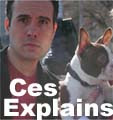Marcia Froelke Coburn of Chicago Magazine:
The piece also features Neil's candid photos of his wife and children.Steinberg examines in unrelenting detail how he had been drinking -- sometimes up to 40 ounces of hard liquor a day -- for a long time. Somewhere along the line, it stopped being fun. The book starts the day before the domestic-battery incident and then takes the reader through Steinberg's 28-day rehab and his struggles to stay sober (under the threat of a divorce) in the first months afterward. His wife, Edie, is a pivotal yet aloof character in the account. She is a driving force in his quest for sobriety, yet she moves quietly around the edges of much of the book, reading her Al-Anon pamphlets and refusing to indulge her husband.
Drunkard is, by turns, horrifying (Steinberg drinks the bottle of vanilla used for his kids' French toast), exasperating (he turns a speech in New York into a scene from The Lost Weekend), frightening (he leaves his young son Ross alone in the children's section of the Northbrook library so he can run out and buy a pint of bourbon), and funny (home from jail, he wishes he had spent half as much time thinking about his life as he had planning his kitchen renovation).
The book is a compelling read, sad and wistful and breathtakingly forthright. Amazingly, it also has a lot of laughs.
Steinberg's former S-T colleague Esther Cepeda spoke with Neil for her "600 Words" column:
"I was writing it as it was happening, so I like to think they're fresh," he said. "The editing was excruciating – that was as difficult, if not more difficult, than the writing. At the time [of recovery] the book was the one thing I could control. I couldn’t control the drinking, the law, or the case but I could control the book. During the editing I had to really battle to keep control if it."Kirkus review (via the Little City Book Sale site):
And was it worth it?
"If I wrote ‘Ulysses’ it was," he says, reasonably tired of pondering it. "Given the pain, ‘The Sun Also Rises’ would not have been worth it to me, I would have much rather avoided the whole thing."
"That said, I feel I did the best I could with a bad situation. I at least rose to the occasion and didn’t move to a Red Roof Inn and continue drinking. At least not yet."
Instead of romanticizing recovery, he does something much more difficult and effective: He acknowledges, even celebrates, the allure of the drinking life and sees his year of sobriety as both "a triumph" and "little more than a good start."Enlivened by humor and brisk prose, Steinberg's unflinching tale is far more compelling than most recovery memoirs.From the Salon.com list of recommended summer books:
Much of Steinberg's memoir takes place in fluorescent-lit A.A. rooms or at meals where he must begrudgingly swap his beloved Jack Daniel's for iced tea, meanwhile reconciling himself with the man he has become: a drunkard. He wears the identity like a hair shirt, resenting the 12-step doublespeak and the God stuff. His struggle to stay sober isn't exactly sexy; getting clean is never as fun as getting dirty. But it is a clear-eyed (at times even elegant) depiction of the desperation and denial of the white-collar wino, who must stumble repeatedly before realizing that intellect and ego alone are not enough to save him.And long time readers know that if "intellect and ego alone" could save anybody, it would be Neil Steinberg.
More reviews and interviews as they become available.
Previously: Steinbook Roundup Part 1.
UPDATE - Missed Bookshipper's 4-star review:
Steinberg has drawn a vivid and scary picture of what someone can become when the drinking gets out of control. Despite the fact that he is on the verge of losing absolutely everything, including his mind, his addict mind will not let him see that he truly needs help.Again, if you spot something about Mr. Steinberg's book lemmie know.
Through his struggles and with alot of honest insights, Streinberg starts to see that maybe he is, after all, the addict that everyone else seems to believe he is. The author does not hesitate to describe his nightmare and is very candid about his role in how he got there and more importantly, how he can get to a happier, sober place.













No comments:
Post a Comment